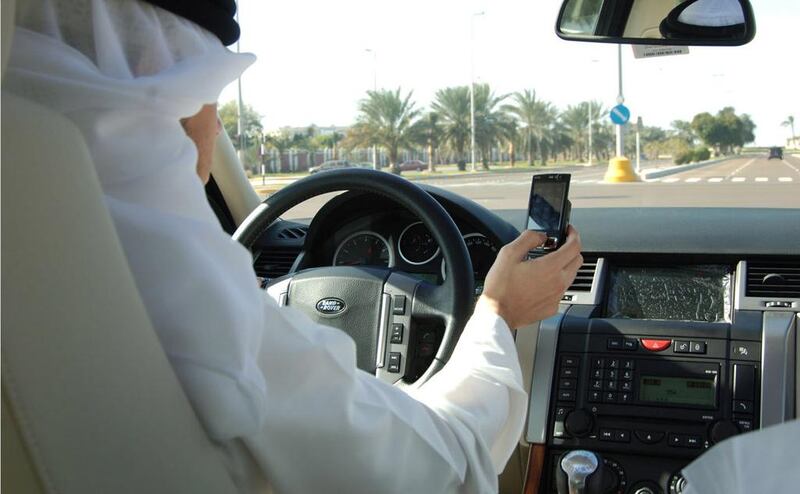Texting at the wheel is a lethal combination that can have devastating consequences, as experts claim new research proves the brain is not wired to perform multiple complex tasks at once.
Some people claim to be competent at multitasking, but science suggests otherwise and adds further evidence to the potential for road safety improvements offered by autonomous vehicles.
Guidance on driver safety has been offered by experts at Ford Middle East, who have said the effects of distracted drivers or those who are mentally taxed whilst at the wheel can be disastrous.
Driving is a high cognition activity because the conditions change regularly and often at very short notice, according to Matt Gerlach, an advanced driving instructor with Ford with a decade of experience training engineers to become expert drivers at Ford test centres.
“I’ve trained hundreds of drivers over the years, and based on my experience, I’d say that just normal road driving uses around 85 percent of your mental load,” he said.
“Just sending a text message, taking a photo or even just having a conversation with a passenger may not seem very difficult to do but it can overload the brain when someone’s driving – and that’s when accidents happen.”
_______________
Read more:
[ Use a phone while driving and have car confiscated ]
[ Motorists warned over dangers of eating and drinking behind the wheel ]
_______________
Traffic authorities in the UAE said 10 per cent of crashes could be linked back to drivers using their mobile phones to browse social media or take videos while driving.
During the Eid holiday, police said there were 728 recorded accidents in Dubai, with speeding, tailgating, carelessness and distraction the main cause of crashes.
Experts have identified four major categories of driver distractions that can divert the brain’s attention from the road and often lead to serious accidents.
Visual distractions, like checking a phone or applying make-up, audible distractions like talking on the phone or loud music and manual distractions that encourage a drive to take hands off the wheel have been cited as major caused of accidents.
Cognitive reasons, such as impairment of concentration due to tiredness or medication has also been blamed as a risk factor.
A car travelling at 100 kph can travel 390 metres in 14 seconds, the average time required to take a selfie.
A study in Saudi Arabia revealed that 98.2 per cent of drivers admitted to using their mobile phones while driving, and that using a mobile phone while driving was one of the top five causes of accidents in the Kingdom.
More than 40 per cent of drivers said that they read at least one text message a day, and 25 per cent admitted sending a text message.
When training other drivers, Mr Gerlach encourages drivers to go beyond their usual cognitive load to asses response times and improve driving ability.
“When you’re using 85 per cent of your cognitive load to drive, your mind doesn’t have the capacity to do much else,” he said.
“It doesn’t matter who you are, whether you’re a professional or if you just drive once in a while – if you can begin to understand how much of your brain you’re using just to drive the car, it can help keep your cognitive load in check and make you a safer driver.”
Drivers can reduce the risk of an accident by concentrating just on driving and avoiding dangerous distractions when behind the wheel.
Motorists can also expand their field of vision, to try and be more aware of potential risks around them. Road users should also avoid driving while drowsy.
“It’s no secret that mental abilities diminish when fatigued or under the influence of even the mildest medications,” said Mr Gerlach.
“Being fully awake and alert when behind the wheel greatly enhances response times.”







